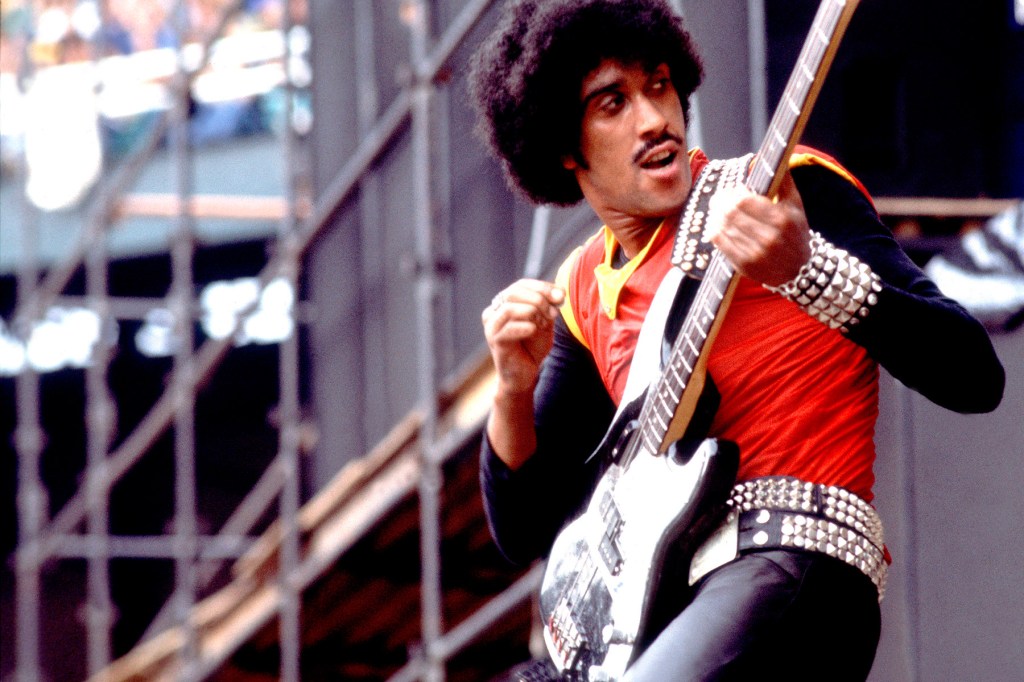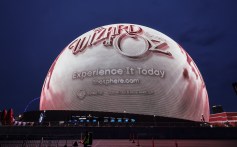Business News
Page: 5
Trending on Billboard
Today is officially Music Creator Day.
Spearheaded by SOCAN, the date was acknowledged by Senator René Cormier on Nov. 4 in the Canadian Senate and by Member of Parliament David Myles in the House of Commons two days later.
As of 2025, Nov. 7 will now be annually observed as Music Creator Day across the country.
Related
It coincides with beloved Canadian singer-songwriter Joni Mitchell’s birthday, paying tribute to her contributions and representing a lasting legacy for the next generation of musicians.
“Thank you for honouring my work in this manner,” Mitchell says in a statement. “Although I have lived mostly in the States since I was 21, I live part-time in B.C. I have always been proud to be a Canadian and lately more than ever.”
Earlier this year, Mitchell was honoured with SOCAN’s 2025 Cultural Impact Award, recognizing her impact as a Canadian songwriter. Canadian singer-songwriter Allison Russell performed a showstopping rendition of “Both Sides Now” at the SOCAN Awards and spoke to Billboard Canada about her work with the legendary artist. “Getting to be in creative communion and community with her has been one of the most surreal gifts of my life,” she said.
“I invite you all to sit down and enjoy your favourite Joni song, or a song by any other amazing Canadian, and honour the great musical creators of this country on Music Creator Day,” says MP Myles.
The declaration is accompanied by a recent survey conducted by Pollara for SOCAN on the connection between Canadian music and culture. They report that 81% of Canadians believe supporting local music creators is vital to ensuring our culture thrives for future generations, with 77% claiming local music helps define Canadian culture.
It’s reflected on the charts, too. As of November, five Canadian artists have hit No.1 on the Billboard Canadian Albums chart, including two albums from The Weeknd, PARTYNEXTDOOR & Drake’s collaborative $ome $exy $ongs 4 U and Tate McRae’s So Close to What, marking the pop singer’s first No. 1 on the chart. The most recent was Justin Bieber’s Swag, which sat at No. 1 for one week.
Read more here.
Canadian Government Renews Canada Music Fund in 2025 Budget
The Canada Music Fund has been renewed.
After a few weeks of uncertainty from independent Canadian music industry groups, yesterday (Nov. 4), the government officially renewed and allocated $48 million to the fund, in the first federal budget tabled by Finance Minister François-Philippe Champagne — it will be distributed over the next three years, beginning in 2026.
Related
The decision serves as a moment of celebration for Canadian music organizations. Québec music organization ADISQ shares that it’s a relief for the industry.
“This renewal was essential for our companies to continue investing fully in the career development of local artists, and thus maintain the sector’s competitiveness,” says Eve Paré, executive director of ADISQ, in French. “Public funding provides leverage for our industry. It plays a vital role in reaching the full potential of our cultural vitality.”
For over four decades, the Canada Music Fund has been a cornerstone of Canada’s music economy, supporting FACTOR and Musicaction, two of the country’s biggest and most important music grants.
The Canada Music Fund’s $48 million renewal extends the $16 million annual boost that was announced as a temporary two-year top-up in 2024, with another $16 million for the next three years.
Securing stable funding will enable music orgs to meet the challenges they face, such as declining contributions to private radio broadcasting, and will serve as a boost after the paused 5% revenue funds for major foreign-owned digital streaming platforms under Bill C-11.
The Canadian Independent Music Association (CIMA) notes that the renewal is a sign of recognition and validation for homegrown artists and organizations.
“Canadian music companies and the artists they work with represent a dynamic economic engine powering the growth of Canada’s cultural economy. This budget announcement is an encouraging step forward,” says Andrew Cash, president and CEO of CIMA.
The renewal will benefit live music organizations, too. The Canadian Live Music Association (CLMA) enthusiastically welcomed the federal government’s continued investment in Canada’s cultural sector, “including the commercial live music infrastructure of venues, festivals and promoters that connect artists to audiences across the country.”
In addition to the renewal, the government has announced a $150 million funding increase for CBC/Radio-Canada, with hopes of the country securing a spot on Eurovision’s international song contest.
“Public funding preserves a dynamic local ecosystem that values what makes us unique. We must now work to guarantee the sustainability of this funding and thus ensure the future of our music,” says Paré.
Read more here.
Music Streaming Services Call On National Assembly of Québec to Forego French-Language Quotas
Music streamers are speaking out against new French language music streaming legislation.
The Digital Media Association (DiMA), the trade association and lobby group that represents platforms including Spotify, Apple Music and Amazon Music, has raised concerns about Bill 109, a proposed new law that would ensure French-language content is prioritized by digital platforms operating in the province.
Related
Bill 109, titled An Act to affirm the cultural sovereignty of Quebec and to enact the Act respecting the discoverability of French-language cultural content in the digital environment, was introduced in May by Québec’s Culture Minister Mathieu Lacombe.
If passed, the act would “enshrine the right to discoverability of and access to original French language cultural content” into Québec’s Charter of Human Rights and Freedoms, and allow the province’s government to mandate “the quantity or proportion of original French-language cultural content that must be offered by digital platforms.”
The bill states that the Quebec government has to establish content quotas on how much music needs to be produced or featured on these platforms, although no numbers were specified. All platforms would be required to register with Lacombe.
According to DiMA, the major streaming services don’t want any new discoverability requirements and French language quotas.
In a submission to the Committee on Culture and Education in the Québec National Assembly, the music association writes that “mandating quotas and the discoverability of certain tracks or types of tracks risks altering the business model that has made streaming so attractive and has delivered vital revenues to artists and the music industry.”
The organization fears that if there is government intervention, it will affect how the streaming services operate, and “degrade the user experience,” which may limit the flow of revenue to Francophone artists and rightsholders.
Additionally, DiMA raises logistical issues with the government’s implementation of content quotas.
DiMA highlights that the key to ensuring both parties are satisfied is prioritizing the ultimate objective — to promote the language and culture of Québec.
“We believe the most effective path forward is one focused on listener choice, not constraint. Québec artists and Francophone music are thriving on streaming services today because audiences are empowered to find and listen to music organically,” says Graham Davies, DIMA’s president and CEO.
“By working together — combining the government’s cultural vision with the streaming services’ reach, expertise and innovation — we believe Francophone and music of Québec can continue to thrive both at home and on the global stage.”
While Quebec is pushing discoverability of French-language music, the online platforms are pushing back against the cross-country “streaming tax battle,” pushing against the Canadian Radio-television and Telecommunications Commission (CRTC)’s now-paused plan to require major foreign streaming companies to invest 5% of their income to support Canadian content.
DiMA has led a campaign called “Stop The Streaming Tax,” which some in the music industry have called “disingenuous.” Services like Spotify, meanwhile, have been touting the success of francophone music on its platform.
Read more here.

Trending on Billboard Another day, another flood of music industry deals. How does one keep track? In an effort to provide an overview of the latest acquisitions, mergers, joint ventures, licensing agreements and more, Billboard publishes a list of all of the latest pacts that have hit our radar every other Thursday. Intellectual property rights […]
Trending on Billboard Leda Chang has been named senior vice president of global brand and audience for Warner Music Group’s global catalog division, a newly created role aimed at accelerating the company’s artist-focused marketing strategy. Reporting to global catalog president Kevin Gore, Chang will lead efforts to deepen fan engagement and unlock new growth opportunities […]
Trending on Billboard
Led by concerts and music releases from aespa and NCT WISH, SM Entertainment revenue rose to 321.6 billion KRW ($237.3 million), up 32.8% from the prior year period, in the third quarter of 2025, the company announced Thursday. Operating profit jumped 262% to 48.2 billion KRW ($35.6 million) and net income soared 1,100% to 44.7 billion KRW ($33 million).
“In this quarter…our leading artists have continued to prove their solid capabilities while new IPs are growing rapidly and adding fresh energy to the company,” CEO Cheol-hyuk Jang said during Thursday’s earnings call. “This generational synergy further reinforces the foundation of our IP portfolio, exemplifying the virtuous cycle of a sustainable IP ecosystem that SM Entertainment aims to build.”
Related
Recorded music rose 32.7% to 96.7 billion KRW ($71.4 million). New album sales grew to 5.42 million from 3.61 million in the third quarter of 2024. NCT WISH’S COLOR – The 3rd Mini Album, sold 1.48 million units while aespa’s 6th mini album, Rich Man, sold 1.13 million units. SM Entertainment does not break out streaming performance.
Concert revenue rose 37.5% to 52.5 billion KRW ($38.7 million) despite SM Entertainment having fewer concerts compared to the prior-year period. RIIZE’s RIIZING LOUD tour had 20 shows during the quarter in Seoul, Japan, and Hong Kong. NCT DREAM performed 8 concerts in Seoul and Thailand. Super Junior had 6 shows in Seoul, Hong Kong and Indonesia.
Merchandise and licensing revenue rose 32.8% to 50.3 billion KRW ($37.1 million) on the strength of concert merchandise and pop-up retail stores. The company cited aespa’s concert merchandise and light stick sales and pop-up stores from aespa, NCT WISH and Super Junior.
Looking ahead, Jang provided details of SMTR25, an “artist incubation project” intended to help SM Entertainment expand globally. SMTR25 has 15 trainees who are taking part in a new reality TV series, Reply High School, that will be released in the first half of 2026. SMTR25 also released an original content series, W.O.W! (Way Outta Walls) a travel series produced with support from the Korean Tourism Organization.
Jang also highlighted the early success of a young SM Entertainment group, Hearts2Hearts. “Within a short period of time, Hearts2Hearts has proven its capabilities across all fronts — musical success, fandom growth, and brand influence — solidifying its position as SM Entertainment’s next-generation global IP,” he said.
Trending on Billboard
Over the last 12 years, Greg Harris has quietly, methodically steered the Rock & Roll Hall of Fame to massive financial growth despite a swamp of issues — from its lack of female inductees to Rolling Stone founder Jann S. Wenner’s abrupt 2020 departure as foundation chairman to Dolly Parton’s (temporary) refusal to accept her nomination. According to ProPublica, the Cleveland-based hall and museum’s revenue increased from $19.2 million in Harris’ first year as president and CEO in 2012 to $54.8 million in 2023, while its annual visitors recently hit 1.5 million. “We worked to grow the business so that we’d be more stable,” says Harris. “And we have an incredible group of donors.”
Talking to Billboard by phone from the museum’s I.M. Pei-designed pyramid — before he visited the construction site of its $135 million, 50,000-square-foot expansion — Harris previewed the 2025 Rock & Roll Hall of Fame ceremony to induct Outkast, Cyndi Lauper, Joe Cocker, The White Stripes and others. (The show, this Saturday Nov. 8, will be livestreamed on Disney+.) He also discussed the Hall of Fame’s six new board members, plus Chris Kelly, a partner at Cleveland law firm Jones Day, who became board chair in July. A former Philadelphia record-store owner, folklorist and top National Baseball Hall of Fame exec, Harris spoke of the common “emotional impact” of sports, music and folklore during the conversation, which you can read in full below.
Related
What accounts for the revenue growth since you’ve been president?
Harris: We’ve greatly increased our visitation in those years. We made the museum more experiential. Odds are, in the summer, there’s a live band onstage. You can play guitars and drums and things in new spaces that we’ve built and jam with other visitors. We’ve made a lot of investments in improving the visitor experience, and they’ve paid off.
What’s the greatest percentage of revenue? Is it the paid visitors, or something else?
Visitors, ticket sales and retail sales are incredibly important, and we have a lot of events and groups that do events. Our fundraising is what’s enabled us to do this massive expansion project.
It strikes me that the iconic names from the ’50s and ’60s have mostly been inducted, so the Hall of Fame has to update it with new generations. Is that difficult? Fun? Both?
It’s a healthy project to continue to look at different eras. And maybe going against your hypothesis is that Chubby Checker and Joe Cocker are going in, and you could extend that up to the ’70s and ’80s and ’90s with Warren Zevon.
Related
Do you get as many, “That’s not rock ‘n’ roll, that’s Dolly Parton, or [fill in the blank],” as much as you used to?
I believe that’s died down. This big tent of rock ‘n’ roll, that all these different genres and sounds and eras fit into it, has become much more widely accepted. It’s fun to tell these stories about how it all fits together rather than defend a decision here or there. It’s all rock ‘n’ roll. It all fits.
Everybody has a hot take on who should be in and who shouldn’t. What’s yours?
When I came over here, you would think about a certain artist, and most of them have gotten in. Back then, I thought Tom Waits should be in, of course — now he’s in. Stevie Ray [Vaughan] — now he’s in. Hall and Oates — now they’re in. That’s the debate we get to have all year long. At this moment, let’s celebrate this year’s inductees.
The new trustees have business backgrounds, not music backgrounds. Why is that the right criteria to lead the Hall of Fame?
What we look for is good trustees that will help advise us, help us think bigger and help us grow. Because the museum has such an economic impact in northeast Ohio, we do have quite a few of them from northeast Ohio, and they’re here to make sure this entity is terrific for this region while still being terrific for the world.
Related
Chris Kelly, the new board chair, was head of the Republican National Convention host committee in 2016. Did that come up in the process of choosing him for the Hall of Fame, since so many people involved in the organization are politically progressive?
The host committee is what every city has when they try to attract a political convention. That convention was in Cleveland in 2016, but the reason why cities want them is because they’re a massive economic boon to the local economy. It’s not a political statement. It’s about attracting these things, like attracting the Olympics to your town.
Early in your career, you went from founding the Philadelphia Record Exchange to studying folklore in Cooperstown, N.Y., which led you to the Baseball Hall of Fame, then here. What was that transition like?
When I discovered there were these people called folklorists who do oral history, they make documentary films, they produce records, I thought, “What a career, that’s me.” After the Record Exchange, I road-managed some bands. I went back to college and thought I’d go to law school and worked for a law firm, and it just wasn’t for me. That’s when I went heavy on the folklore and museum studies. The great thing is, it’s a history of everyday people, and in many ways that’s what rock ‘n’ roll is all about.
Anything I’ve missed?
One thing is to make sure fans tune in. Go online and watch the streams of the induction. Visit us in Cleveland. We’re open 363 days a year. We have an exhibit right now on Saturday Night Live, 50 years of music that contains every performance. You can watch all of them.
[Harris calls back 30 seconds after the interview.]
What I should’ve ended with was, I love all museums, but this is the greatest museum in the world, and the one place where every visitor has a memory tied to the songs. People come through, they hear a certain song or they remember something they heard in college, the greatest road trip of their life … all that is tied to the music we get to honor every single day at the museum.
Trending on Billboard
Ed Sheeran has celebrated a major victory for his music education campaign as the U.K. government confirmed on Wednesday (Nov. 5) that music lessons will be taught more widely in schools.
Earlier today a major review of the National Curriculum – which dictates what subjects and topics are taught in non-fee-paying state schools – was published by the Labour government. The changes are the first in over a decade, and will see a number of modern topics (such as artificial intelligence) enter the classroom.
Related
The report says that arts subjects will also be “revitalised” and will see the scrapping of the English baccalaureate (EBacc), which critics – including Sheeran – said limited subject choice for students at a GCSE level (ages 14-16). Under the program, introduced in 2010 by then-education secretary Micahel Gove, pupils were required to study a minimum of seven GCSEs, including maths and a language, but the options did not include any arts subjects.
In March, Sheeran called on U.K. prime minister Sir Keir Starmer to scrap the Ebacc, deliver £250 million in spending towards music in a classroom environment and enlist more teachers for music subjects. His letter was backed by over 600 signatories, including Sir Elton John, Harry Styles, Coldplay and more. He also launched the Ed Sheeran Foundation in January to help support careers in music.
“We are at a critical point: a future of no music in state schools, no music teachers to teach, broken instruments and no grassroots venues,” he wrote in his letter. “As a young music student and aspiring artist, I benefited from opportunities in and out of school to learn and grow. Unfortunately, after decades of defunding and de-prioritising, music is no longer a right for all children – it’s a luxury for only a few.”
Sheeran’s efforts have now been recognized both by Starmer and Bridget Phillippson, secretary for education. The former sent a direct response to Sheeran saying that his “voice had been heard”. During her speech in parliament on Wednesday, Philippson credited Sheeran for speaking “so powerfully” on the subject. The final curriculum will be published in spring 2027, and schools will begin teaching it from September 2028.
Sheeran has responded to the news and the success of his letter, writing “With the help of the letter and everyone who signed it, I’m happy to say that some of the key points we raised have been recognized by the government today, marking the first change to the music curriculum in over 10 years. This involves diversifying the music genres taught in schools and removing outdated systems that stop kids from studying music and the arts as part of their school day. These changes give young people hope and the opportunity to study music.” See his full statement below.
The topic of music education was raised by a number of British artists at the BRIT Awards 2025, when winners Myles Smith and Ezra Collective called on action to help foster creativity among young people in education.
Ed Sheeran’s full statement
I set up the Ed Sheeran Foundation because every child deserves to have access to a meaningful music education, and the chance to experience the joy and confidence that musical expression can bring.
Shortly after setting up my foundation, I wrote an open letter to the Prime Minister about the critical state of music education in the UK and the fact it was slipping through the cracks. The letter was backed by so many incredible people across the music industry and education who all said the same thing: music education matters. The Prime Minister replied, recognising the challenges and expressing his commitment to change.
With the help of the letter and everyone who signed it, I’m happy to say that some of the key points we raised have been recognised by the government today, marking the first change to the music curriculum in over 10 years. This involves diversifying the music genres taught in schools and removing outdated systems that stop kids from studying music and the arts as part of their school day. These changes give young people hope and the opportunity to study music.
Without the encouragement I received in school, especially from my music teacher, I wouldn’t be a musician today, and I know so many of my peers feel the same. My music education went beyond learning and playing. It helped me find confidence in myself, and music itself was – and still is – so important for my mental health.
There’s a lot more to do to support music education, especially our music teachers, but this is a step in the right direction.
Thank you so much to everyone who signed and supported the letter.
Today is a good day.
Ed x
Trending on Billboard
A coalition of top independent labels has joined forces to launch Catalog, a curated music licensing marketplace designed to let artists sync their music and receive real-time compensation.
Beggars Group, Domino, Ninja Tune, Warp, Partisan Records and Erased Tapes are among the early supporters of the platform, which launches Wednesday (Nov. 5) via music supervision company Too Young Ltd.
Related
Created by Frederic Schindler, AIM’s music supervisor of the Year 2025, the platform will debut with more than 30,000 sync-ready tracks from over 1,800 artists, with the aim of serving as an antidote to the royalty-free stock music economy.
Catalog arrives with the intention of helping to put more money into artists’ pockets. Creatives are able to set sync offers via its Sync Smart Pricing technology, which analyzes data points on an artist and song history to generate market-rate fees. The process thus allows for approvals faster, bypassing the traditional exchange of documents and any subsequent red-lines by auto-generating a final license once the terms have been agreed upon between stakeholders.
While searching for music on Catalog, creatives can use advanced filters such as audio similarity, and audio-to-picture auditioning, as well as being guided by a human-led “editorial search” mode to find relevant tracks. Artists signed up to the platform include Kurt Vile, Yves Tumor, Ela Minus, Marie Davidson and Icelandic multi-instrumentalist Ólafur Arnalds.
By providing this technology, Catalog is seeking to reduce the number of sync exchanges with “ghost artist libraries” – stock music attributed to anonymous musicians, presumably in an effort to reduce sync payouts for advertisements, video content and so forth.
“Catalog is the result of a deep collaboration with the most forward-thinking rights holders in the industry,” Schindler explained to Billboard U.K. “This is what happens when artists, labels, publishers, managers, and supervisors come together to address a problem. We’re not ‘disrupting’ them; we’re building this new era together.”
Ahead of its launch, Catalog music director Thierry Planelle worked with Veronique Nichanian, creative director of Hermès, to replace a key track for the fashion house’s Men’s Ready to Wear 2026 runway prior to the show. The feat prompted an endorsement from Christof Ellinghaus, founder and CEO of revered indie City Slang.
“This placement very quickly demonstrated Catalog’s ease of process and powerful usability,” Ellinghaus said in a press release. “We are excited about the prospects ahead with this great new platform. And trust us, we usually hate platforms!”
Membership applications for Catalog are now open in the U.K., Europe, US, Canada and Mexico. Further access information can be found on its official website.
Trending on Billboard The sheer number of artist signings announced on a weekly basis makes it difficult to keep up, no matter how closely you pay attention to the industry news cycle. That’s why every other Tuesday, Billboard compiles the latest signings to labels, distributors, agencies, management companies and more, in an effort to provide […]
Trending on Billboard
Imagine the distance between Las Vegas and Chicago. Now imagine a line of 20 million stacked plastic cups and single-use serveware items extending along the 1,700-mile route.
According to reuse company r.World, that’s the actual cumulative number of plastic cups and single-use serveware items it and its partners have kept out of landfills since r.World launched in 2017.
Related
R.World provides reusable cups and serveware to venues and events, which are then returned by fans and sent out for cleaning at nearby r.World wash stations. R.World products are now in and at venues and events including Crypto.com Arena, Peacock Theater, Red Rocks Amphitheatre, Warped Tour and myriad Goldenvoice festivals. The company has also partnered with artists including Chappell Roan, Billie Eilish and Coldplay.
According to r.World, its work has thus far stopped more than 110 tons of plastic from being produced (netting out any plastic the company itself used), thereby eliminating 440 U.S. tons of CO2 emissions, saving 1,650,000 kWh of energy and conserving 5,000,000 gallons of water — amounts representing the creation and transport of these single-use items. Every cup or piece of serveware the company delivers that’s then returned is counted to ensure accurate environmental impact tracking and reporting.
“There is tremendous new growth in the world of reuse,” r.World founder Michael Martin tells Billboard. “When we launched the reuse movement back in 2017, no one was doing reuse. Now NFL, NBA, NHL, MLS, MLB and college stadiums are implementing reuse. As more and more venues realize the economic and environmental benefits of doing reuse, we are adding more clients every month.”
Martin says the company will be announcing a host of new partners in the coming weeks. Still, amid this growth, he says the biggest hurdle remains the fear of change and misinformation that exists in the marketplace, along with an “imagination gap” in terms of how reuse works. He notes that reuse can save venues money; that it’s a “vastly better” environmental solution than single-use aluminum cups, compostable cups, souvenir cups or plastic cups; that the reuse system is easy; and that guests and servers love it.
Related
“Reuse is common in most developed countries. The U.S. was behind,” Martin says. “As more and more U.S. venues are discovering the benefits of reuse, the demand is skyrocketing. The country’s leading venues are moving to reuse and away from single-use.”
Many scientists have noted that the world is currently in a “plastic crisis,” with these items contaminating natural spaces and waterways, harming wildlife and humans. Health Policy Watch reports that 98% of plastics are made from fossil fuels, with plastics “polluting human health through an array of pathways, including direct exposure to waste fills or chemical plants, environmental contamination, absorption through food packaging, microplastics, air and soil pollution, and burning of feedstock fossil fuels.”
R.World is one of several initiatives aimed at dramatically bringing down the use of single-use plastics in the music industry and beyond. In September, electronic producer Blond:ish announced Zero Plastic Club: NYC, a project that’s working to rid New York City dancefloors of single-use items like bottles, cups and wristbands.
“The movement toward reuse is a collective effort, built on partnerships and shared values, with contributions from venue managers, beverage companies, promoters, artists, and fans,” says Martin. “Every time a fan returns a reusable cup instead of throwing one away, they play a part in a larger transformation.”
Trending on Billboard
Sphere Entertainment Co. reported on Tuesday (Nov. 4) that the success of The Wizard of Oz and the Backstreet Boys residency at its state-of-the-art Las Vegas venue boosted revenue and operating income — though those gains couldn’t offset a nearly $130 million operating loss in the third quarter.
Sphere Entertainment generated revenue of $262.5 million, up 15% or $34.6 million, for the quarter ending Sept. 30, compared to the same period last year. Adjusted operating income, an indicator of how much of a company’s revenue will eventually become profit, rose to $36.4 million from negative $10.2 million a year ago. The company also reported an operating loss of $129.7 million, up $12.1 million from a year ago.
Related
Since opening in 2023, Sphere has become a destination for artist residencies, hosting acts including U2, Phish, the Eagles, electronic act Anyma and now the Backstreet Boys, who recently extended their Into the Millennium residency into February 2026. Upcoming acts include the DJ/producer Illenium, who’s slated for a residency in March and April, and No Doubt, which will play the venue beginning in May.
When Sphere isn’t occupied by a concert, the mega-venue also shows movies, including the U2 immersive concert film recording of its U2:UV Achtung Baby Live residency and The Wizard of Oz at Sphere. The company’s executive chairman and CEO, James Dolan, has said that recording, licensing and adapting these films costs significantly less than live performances and presents meaningful upside revenue.
The Wizard of Oz at Sphere — an immersive adaptation of the classic 1939 movie — has sold more than 1 million tickets and generated more than $130 million in sales since its Aug. 28 premiere, the company reported late last month.
Related
In a statement, Dolan called The Wizard of Oz “the best example to-date of experiential storytelling in this new medium.”
He added that the film “has been met with strong consumer demand. Looking ahead, we believe our Company is well positioned for long-term growth as we continue to execute on our global vision for Sphere.”
Quarterly revenue generated by the company’s Sphere segment rose 37% overall to $174.1 million in revenue over the same period last year, boosted by $28.3 million more in revenue coming from the venue’s film screenings, collectively known as The Sphere Experience.
The Sphere Experience posted higher per-show revenue from its 220 showings (up from 207 last year) of three movies: Postcard from Earth, the immersive U2 concert film and The Wizard of Oz at Sphere. An additional 16 concert residency shows compared to the prior year quarter also helped boost event-related revenue by $15 million, though that was offset by “lower average per-concert revenue due to the mix of concerts” and the absence of big sporting and corporate events in the quarter. Sponsorship and advertising on the outside of Sphere, along with suite licensing fees, rose $2.7 million from a year ago.
Related
But more movies and shows mean more expenses, and those associated with The Sphere Experience rose by about $10 million. Meanwhile, event expenses primarily from residency shows rose by nearly $4 million, contributing to an overall 26% increase in the Sphere segment’s operating expenses, which totaled $78.7 million for the third quarter.
Overall, the Sphere segment posted an operating loss of $84.4 million — a $40.6 million improvement from last year — and adjusted operating income of $17.1 million.
Elsewhere, MSG Networks revenue fell 12% to $88.4 million on a more than 13% decline in subscribers and a $12.7 million decrease in distribution revenue.

 State Champ Radio
State Champ Radio 









